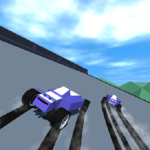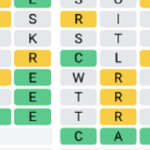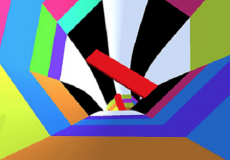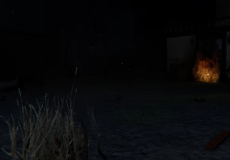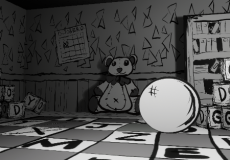
BLOOD MALL
Advertisement
Blood Mall begins with the player arriving at a shopping center that is no longer functioning as intended. Once a public space for movement and consumption, the mall has become a closed environment altered by a new presence. Something unexpected has appeared — not mechanical or human, but alive. As the player begins exploring, it becomes clear that the building has been overtaken. The stores are still recognizable, but the layout now serves a different function: containment and escape.
Advertisement
Similiar games
Blood Mall begins with the player arriving at a shopping center that is no longer functioning as intended. Once a public space for movement and consumption, the mall has become a closed environment altered by a new presence. Something unexpected has appeared — not mechanical or human, but alive. As the player begins exploring, it becomes clear that the building has been overtaken. The stores are still recognizable, but the layout now serves a different function: containment and escape.
Exploration Within Structure
The mall is divided into several sections, each with its own set of pathways, doors, and blocked routes. Players must find ways through this space by observing the environment and responding to what is left behind. Items must be found and used, doors need to be opened, and movement must be cautious. While the setting is familiar in shape, it no longer operates under the same rules. The sense of order that once defined it is replaced by quiet tension and occasional signs of a larger presence.
Core Components of Gameplay
Blood Mall is structured around these key features:
· First-person movement through a defined indoor setting
· A single antagonist that alters how space is used
· Key objects required to unlock new areas
· Environmental puzzles tied to location awareness
· Limited guidance, requiring player initiative and observation
These elements are integrated into a closed structure, pushing the player to treat a commercial space as a survival zone.
The Threat Inside
The dinosaur within the mall is not just an enemy but a disruption to routine. It forces the player to reconsider how to move and where to go. Sound cues and environmental hints suggest its location, creating indirect contact before any confrontation occurs. The game does not frame this creature through combat, but through avoidance and calculation. The mall itself becomes a maze where timing and route decisions matter. Each area revisited may no longer be safe.
Leaving What Remains
By the end of Blood Mall, the player has formed a path through a space that was once predictable. The experience leaves behind more than a series of objectives — it turns a simple location into a structure defined by danger and movement. What begins as a visit to a known place ends with a careful exit through something unrecognizable. The game’s focus on navigation, awareness, and limited instruction encourages players to rethink how space and threat interact in a familiar environment.
Discuss BLOOD MALL






